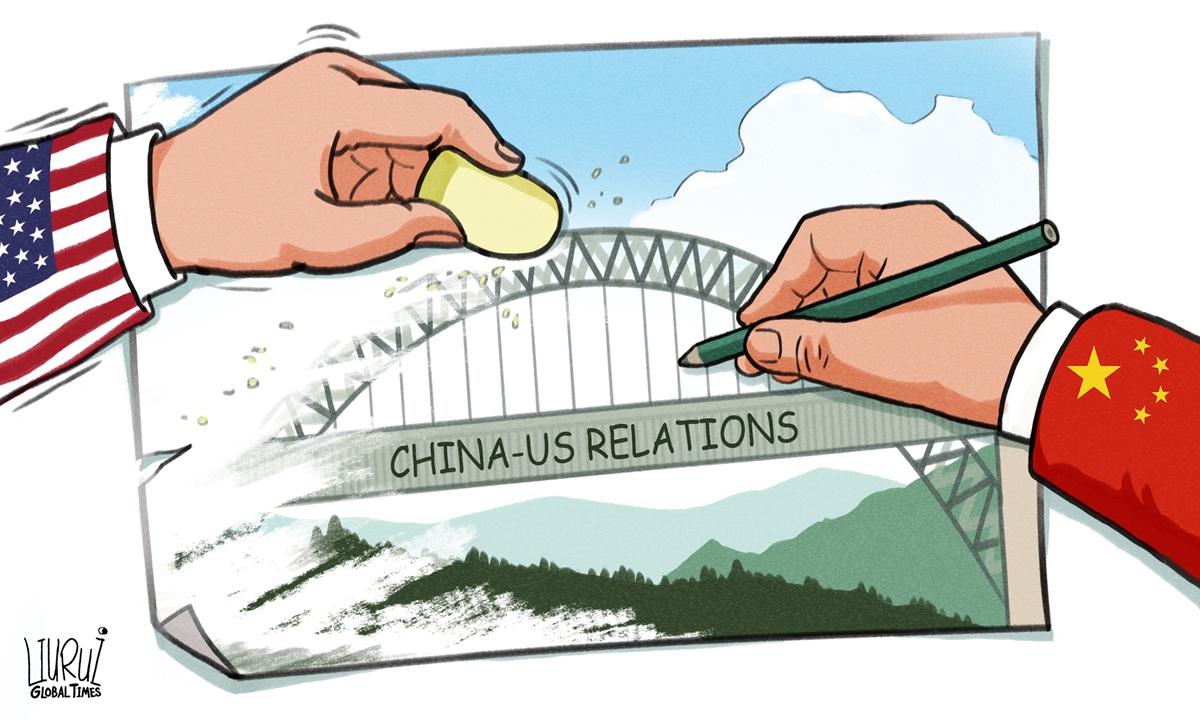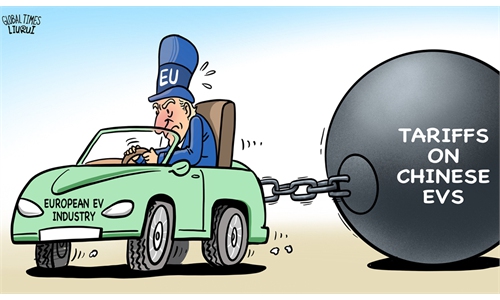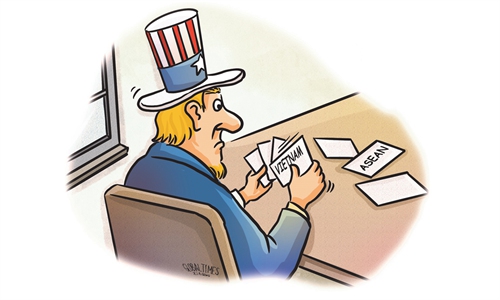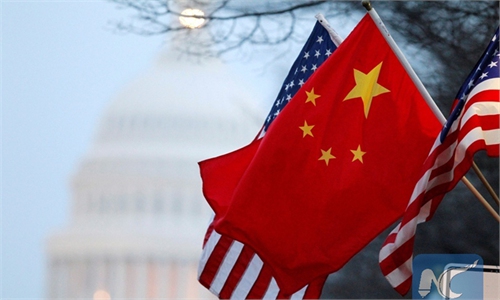
Illustration: Liu Rui/Global Times
As the world watches the dust of US presidential election settles, the US has a tremendous opportunity to steer its relations with China toward a path that will benefit both nations as well as the international community.
The question is: Will the new US government take advantage of this opportunity?
China and the US have agreed that more channels of communication were opened; perhaps the most important was that Chinese and US military officers resumed talks.
However, the US stubbornly refused to move off the "China threat" rhetoric primarily because China will not dutifully stand in line and endorse the West-dominated world order.
As the race for the presidency of the US has ended, a new reality sets in: There are many areas in which the new administration can make relations with China improve. A few will be highlighted here.
The first item to be addressed is tariffs. The argument is simplistic. Critics have warned that sustained tariffs will continue to damage the US economy by making domestic products more expensive, increasing inflation and reducing exports. Nevertheless, as one US news agency recently reported, tariffs are gaining in popularity among Democratic and Republican lawmakers. One can hope that the many voices coming from the business community urging a reduction or elimination of tariffs will be listened to. The damage to China-US relations is incalculable now. If the tariffs are not reduced or eliminated both nations will be hurt and Washington's reputation as a proponent of free trade will suffer a major dent.
Next, the new administration would be wise to clarify what Washington means when it claims to implement the one-China policy. There has been the eye-opening threat that Taiwan will pay the US for protection. Those words sent shockwaves through Taiwan island, whose authorities have become accustomed to receiving billions of dollars in military weapons from the US without offering anything in return.
The US would make a positive mark on bilateral relations by acknowledging that Taiwan is part of China with its words as well as its actions. Too many US presidents have done the former but ignored the latter. To be blunt, stay out of what is a Chinese internal affair. Related to this, consistent messages should be sent to the Republicans and the Democrats telling them to not visit Taiwan.
Such visits have become fashionable in Washington because they provide elected officials with a chance to demonstrate their anti-China sentiment and score political points.
Put it all together and the White House needs to consider how to make clear the US position on the Taiwan question.
In summation, US policy vis-a-vis China in recent years has been defined by distrust. Washington steadfastly refuses to see China as an equal and as a locus of power in a multipolar world. The next US administration will be positioned to change the hostile discourse emanating from Washington.
China has already made its position clear. As Foreign Ministry Spokesperson Mao Ning said that there is hope the two sides will work in the principles of mutual respect, peaceful coexistence and win-win cooperation."
It is hoped that the US will reciprocate with the same rationality.
The author is an associate professor at the Department of Communication and Organizational Leadership at Robert Morris University. opinion@globaltimes.com.cn



